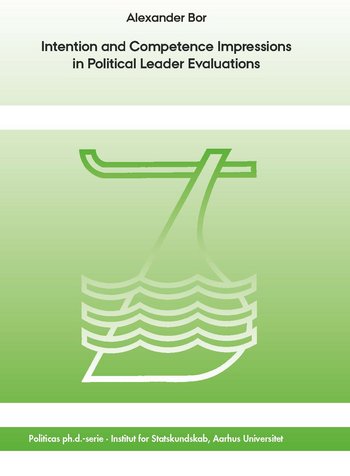Alexander Bor
Intention and Competence Impressions in Political Leader Evaluations

Open a newspaper, history book, or just a conversation on politics with a friend and you will find that people are obsessed with political leaders and their persona. This dissertation takes a deep dive into the architecture of human psychology to better understand the roots and characteristics of this obsession. More specifically, I focus on the two main dimensions of trait impressions and ask what the role of intention and competence in political leader evaluations is. Employing evolutionary leadership theory, I build on the insight that humans have faced the challenge of navigating leader-follower relationships for millennia. Our ancestors who were more successful at monitoring whether a leader would help or harm them (i.e. intention) and whether a leader had the necessary skills to perform their duties (i.e. competence) were more likely to survive and reproduce. These forces may have contributed to evolved psychological mechanisms that still shape leader evaluations to this day. In line with the predictions of this perspective, I demonstrate that intention impressions consistently matter more than competence impressions – particularly for those who do not share a partisan affiliation with the leader; that trait impressions play a causal mediating role in economic voting; and that our mind spontaneously encodes information related to others' competence. This dissertation will be of interest to all who care about leadership, followership, political psychology or an evolutionary approach to politics.
![]() Ophavsretten tilhører Politica. Materialet må ikke bruges eller distribueres i kommercielt øjemed.
Ophavsretten tilhører Politica. Materialet må ikke bruges eller distribueres i kommercielt øjemed.